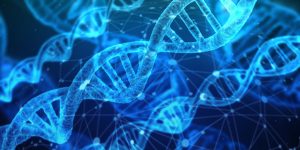by Liza Olkhova

Epigenetics – the study of how gene expression is altered without altering the gene sequence itself – may hold the key to how gene expression can be modified in the offspring of parents exposed to environmental factors such as severe stress, without offspring being exposed to the same factors. This can revolutionise the way we assess and deliver children healthcare
Gene expression regulation depends on various chemical modifications of the genetic code without alteration of the code letters themselves (mutations). Various chemical modifications of genes can either facilitate or hinder gene expression by altering the amount of protein synthesised from a gene.
So the question is, can these gene chemical tags be passed down to the next generations?
It has been shown that they are wiped out in egg and sperm cells, however small non-coding RNA (sncRNA) may be present in sperm and may affect the regulation of RNA levels in zygote and the developing embryo. Moreover, sncRNA molecules can be modulated by stress.
How could the trans-generational changes induced by stress be modelled in vivo? To answer this question, various mouse models were developed, in which mice were subject to stress. Surprisingly, changes in the RNA dynamics were passed on not only to the first generation of offspring, but also to further generations. These gene expression changes were accompanied by behavioural abnormalities, for example, more risk taking behaviour. Rodent behaviour was tested using a specially designed maze that assesses rodent exploratory behaviour.
The next aim is to explore how changes seen in sncRNA molecules in rodent models could be compared to changes in human physiology. For instance, a study involving analysing blood samples of soldiers before and after deployment showed increased levels of different types of sncRNA molecules with some of them correlating to post-traumatic stress disorder (PTSD).
Currently, the science is at the dawn of fully understanding epigenetic changes within human genome and how these changes could potentially be transmitted through to further generations. We have yet to witness more detailed and advanced human studies in order to gain a clearer perspective.